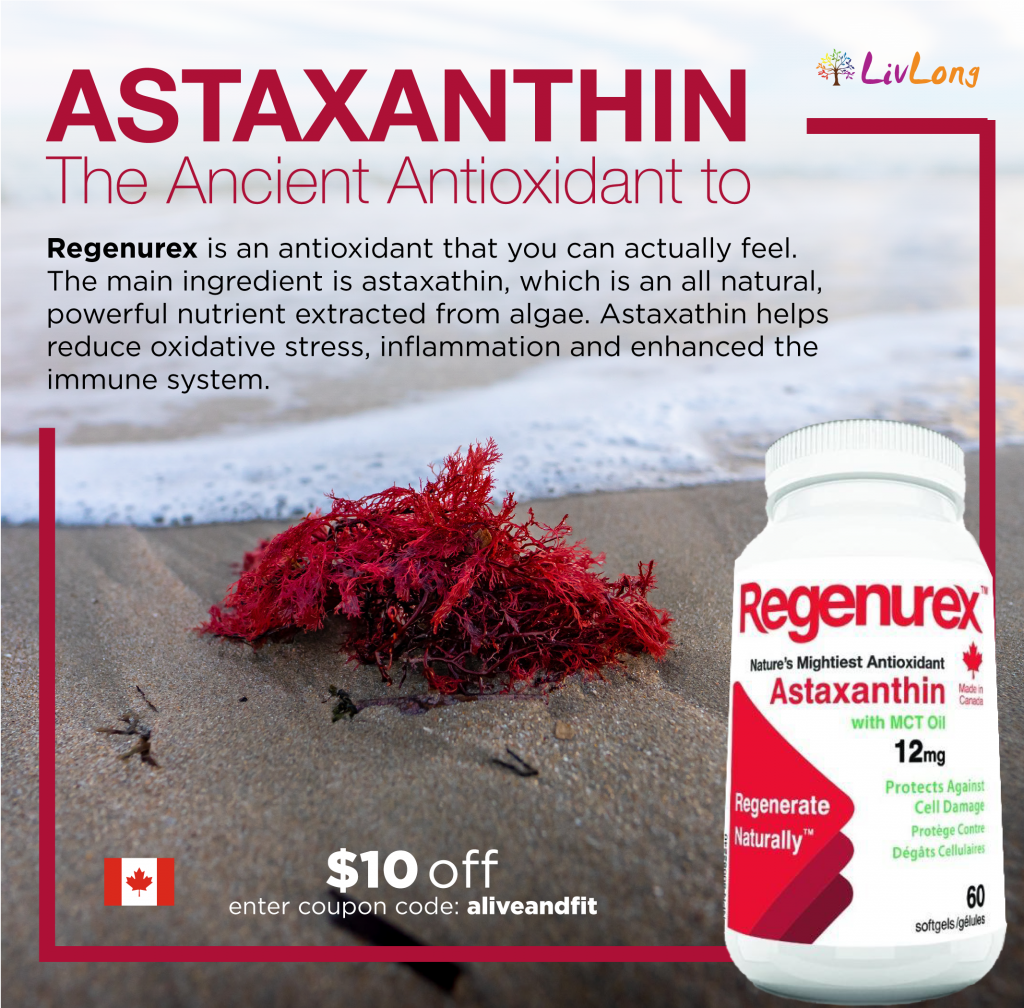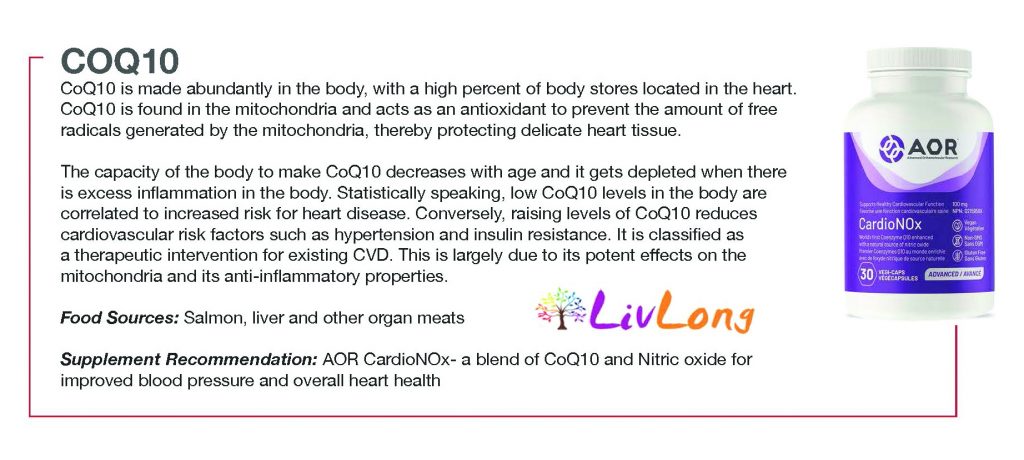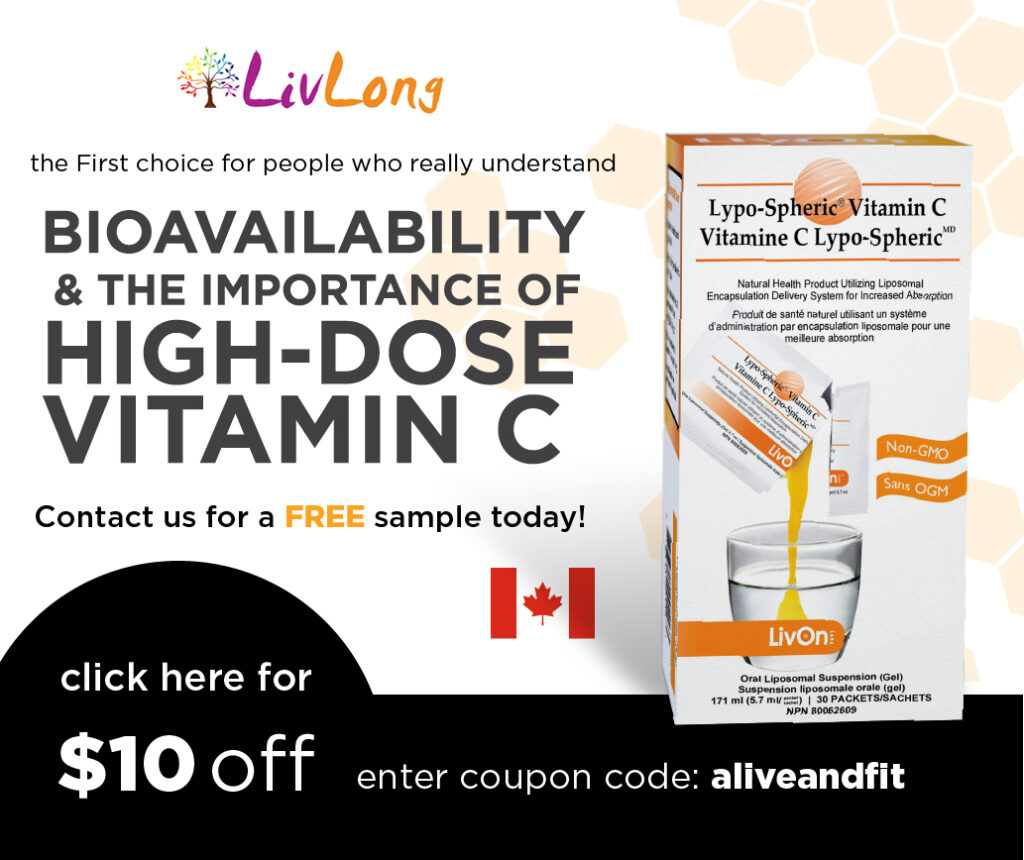3 key nutrients for a healthier heart
By Lisa Lisa Kowalyk, CNP, b.Kin
Heart disease is on the rise all across the world, and is quickly becoming a public health problem. Declining heart health is also correlated to rapid and premature aging and is a risk factor for other chronic illnesses. The health of the heart impacts the body because the job of the heart and blood vessels is to transport nutrients and oxygen via the blood all around the body. Therefore, supporting the heart also supports the health of all other organs. The key to heart health is to reduce risk factors for cardiovascular disease (CVD). Read on to see what our top three nutrients that cover all aspects of heart health are!
Risk factors for CVD
The major risk factors for CVD are insulin resistance (high blood sugar), high blood pressure, stiff, ridged and inflexible arteries, high LDL cholesterol and blocked (narrowed) arteries.
Inversely, a healthy heart and cardiovascular system is characterized by:
- The opposite of insulin resistance, known as insulin sensitivity. Insulin sensitivity is the ability of the body to regulate blood sugar effectively
- Blood pressure in a normal range (around 120/80)
- Fluid, flexible and unclogged, open arteries.
- Balanced cholesterol. In a healthy cholesterol profile there is an ideal ratio between HDL, which is the good cholesterol and LDL known as the ‘bad’ cholesterol. What is referred to as high cholesterol is really referring to high LDL cholesterol in the blood and more specially the amount of damaged LDL
The mechanisms underlying the development of CVD risk factors are complex, however it comes down to two main processes: inflammation and oxidative stress.
Reducing risk factors
There are many layers to heart health. When creating a heart healthy prevention strategy or a plan to help minimize already present risk factors, choosing a variety of interventions that work together on all aspects of heart health and risk factors is paramount.
Diet, stress management and physical activity levels are all avenues to explore and are essential to a comprehensive plan. Above that, there are certain nutrients that alter specific pathway’s conducive to heart health. A few of the most widely researched and used are: CoQ10, astaxanthin, magnesium and vitamin C. These together help all aspects of a healthy heart and cardiovascular system!
CoQ10
CoQ10 is made abundantly in the body, with a high percent of body stores located in the heart. CoQ10 is found in the mitochondria and acts as an antioxidant to prevent the number of free radicals generated by the mitochondria, thereby protecting delicate heart tissue.
The capacity of the body to make CoQ10 decreases with age and it gets depleted when there is excess inflammation in the body. Statistically speaking, low CoQ10 levels in the body are correlated to increased risk for heart disease. Conversely, raising levels of CoQ10 reduces cardiovascular risk factors such as hypertension and insulin resistance. It is classified as a therapeutic intervention for existing CVD. This is largely due to its potent effects on the mitochondria and its anti-inflammatory properties.
Food Sources: Salmon, liver and other organ meats
Supplement Recommendation: A blend of CoQ10 and Nitric oxide for improved blood pressure and overall heart health
Astaxanthin
In addition to its antioxidant and anti-inflammatory properties, astaxanthin supports heart health in three primary ways:
- It creates new LDL receptors in the liver. This moves LDL out of the blood, where it can cause harm and into the liver for safe keeping. Astaxanthin is also the only nutrient able to increase HDL, which transports cholesterol out of the blood.
- It supports the mitochondria and increases an antioxidant known as SOD, which also protects the mitochondria and therefore the heart!
- Reduces a protein that is elevated in CVD and helps to restore vascular function
Food Sources: Salmon
Supplement Recommendation: Astaxanthin
Vitamin C
Often overlooked, vitamin C is essential for heart health. Research shows vitamin C helps to keep cholesterol in a healthy range, protects blood vessels and the heart from oxidative stress and has implications in maintaining a healthy blood pressure.
Perhaps most importantly, vitamin C is required for collagen synthesis. Collagen, while often thought of in terms of beauty and used primarily for wrinkle reduction and hair growth is present in the blood vessels and is important for the structure and thus function of them. When collagen production is compromised, blood vessels can become weak and their ability to function adequately is diminishes.
Food Sources: Bell peppers, broccoli, berries, citrus fruits such as oranges, lemon and limes
Supplement Recommendation: Lypo-Speric vitamin C
Adopting a diet with heart healthy fruits, vegetables and proteins is the gold standard for supporting the heart. Our diet sets the foundation and then we can layer on supplements to account for modern day stresses.
Lisa Kowalyk, B.Kin, is a certified nutritional practitioner.








